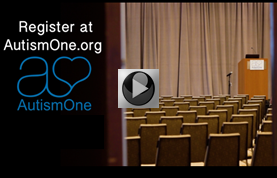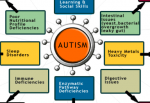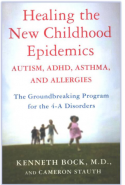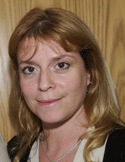Adult Services & Residential Think Tank
|
|

Autism One/Generation Rescue 2010 "Autism Redefined" Conference Saturday, May 29, 2:00 – 6:00 pm
Panelists will offer presentations on the design and delivery of new and existing models for providing high quality residential, job, educational, medical, and community support for adults with autism. This is an open panel discussion which will result in a consensus paper suitable for mailing to legislators. Bring your ideas, issues, and questions as we work together to build a better future for our children. 01 Jim Adams, Ph.D. Bio: Jim Adams, Ph.D. is a President's Professor at Arizona State University, where his research is focused on the causes of autism and how to treat it. He is also president of the Autism Society of Greater Phoenix, and is co-leader of the Autism Research Institute/Defeat Autism Now! Think Tank. His research includes toxic metals/chelation, nutrition (vitamin/minerals, essential fatty acids, amino acids), neurotransmitters, and GI issues. He is the proud father of a daughter with autism. “Beyond Group Homes: Creating Residential Communities” Abstract: For most adults with autism/Asperger’s, one of the largest challenges is loneliness and depression due to lack of friendships and social interaction. Instead of small isolated group homes or other isolated living situations, an alternative is the creation of residential communities focused on providing multiple opportunities for social interaction for people across the spectrum. This presentation will discuss some preliminary ideas and concepts.” Dr. Adams is interested in exploring the following issues and asking the following questions: 02 Dr. Dan E. Burns Bio: Dan E. Burns graduated from Oklahoma State University with a Ph.D. in English in 1979. In 1990 his third child, Benjamin, was diagnosed with autism. Dan and his wife, Susan, explored early biomedical and behavioral treatments. In 1992 the couple divorced and Dan became the primary advocate for his severely autistic, profoundly retarded son. In 2006, Dan and his former wife joined forces to implement the new biomedical protocols coming out of the Defeat Autism Now! movement, including diet, antifungals, antivirals, anti-inflammatories, nutritional support, and detoxification. Dan E. Burns is interested in find answers to the questions raised in his blog at http://tamupress.blogspot.com/2010/01/dan-burns-on-autism-and-what-to-do.html 03 Sonja Hintz, RN Bio: Sonja Hintz, RN, graduated from Marquette University nursing school in Milwaukee, Wisconsin. At the age of 16 she worked at a group home for developmentally disabled adults. Professionally she worked as a public health nurse, psychiatric nurse, and neonatal intensive care nurse. After the birth of her second child, Sonja was compelled to reevaluate the traditional medical paradigms she had espoused in order to meet the needs of her son who was identified as being on the autism spectrum at 3 years old. Through the use of integrative therapies such as therapeutic diet, homeopathy, herbs, vitamins, essential oils, and chelation, in addition to traditional therapies (e.g., speech and language, occupational therapy, etc.), Sonja's son has recovered from autism. For the past 30 years, she has applied what she has learned to help other children improve the quality of their lives. Currently, Sonja is in practice at True Health Medical Center with Dr. Anju Usman Sonja Hintz 1.Individualized placement: How will the individual diagnosed with autism needs be assessed in regards to placement and level of ability to maintain their safety and personal level of ability? 2. Medical care: How will the placement take into consideration their medical issues and need for support? 3. What is the state's criteria to receive assistance when it comes time to live independently from parents or current caregivers, and what assistance do they have to offer? 4.What current organizations are out there that are developing models of living that address the needs of someone diagnosed with autism? 5. Who are the current players in government (federal/state/local) that are assigned the task to evaluate funding and develop bylaws for funding adult services for the disabled? 04 Anna Hundley The Autism Treatment Center (ATC) has gained a great deal of knowledge from our 31 years of providing residential services. Currently ATC serves over 60 adults, ages 21-60, with autism spectrum disorder. Our experience has clearly revealed that operating a residential program is a multi-faceted endeavor and a careful balance of several factors, all falling within three distinct areas. The three areas are all contingent on each other, and no one area is more important than another. The three areas are: providing personal comfort and choices for residents; implementing treatment programs and goals; and having a strong business plan. The residential program’s business plan should address managing and meeting agency funding and licensing agency compliance, billing requirements, sustaining property ownership, up-keep, renovations and remodeling; providing each home with furnishings, supplies and transportation; hiring, training and supervising personnel; meeting good neighbor responsibilities and homeownership participation; addressing safety and emergency procedures; and setting budgetary guidelines. 05 Barbara Fischkin Bio: Barbara Fischkin is known to autism parents as the host of "Maverick Mama," the Autism One Radio Internet program and as the author of mom.notcalm, a weekly column posted on Spectrum magazine's online edition. She is the author of three books - fiction and narrative nonfiction - and is an award-winning journalist who has published in major national and international publications for more than three decades, reporting from Latin America, Asia, Europe, and Long Island. Her first book Muddy Cup: A Dominican Family Comes of Age in A New America (Scribner 1997) has been hailed as a landmark work on immigration and the Dominican Diaspora. Ms. Fischkin's satiric journalism novels, the first offerings in her Lost Tribe of Ronkonkoma Series, are titled Exclusive and Confidential Sources (Bantam Dell 2005/6). Confidential Sources also depicts a family's struggle with autism. Ms. Fischkin's literary agent Frank Weimann is currently presenting proposals by Ms. Fischkin for book, film and television projects related to autism. www.barbarafischkin.com & www.spectrumpublications.com Barbara Fischkin is interested in discussing her hopes and fears. 06 Vicki Martin, RN Bio: Vicki Martin, RN, is on staff at the ARCH Medical Center. She is the parent of an 11-year- old daughter with autism. Ms. Martin has used the Defeat Autism Now! approach for over 10 years and specializes in helping parents negotiate the maze of available options to choose the most effective treatments. She is certified in multiple educational interventions for spectrum disorders and is a strong advocate for all individuals with autism, especially those more severely affected. Her own daughter, who is nonverbal, recently found her "voice" by using RPM (Rapid Prompting Method), and her health is greatly improved as a result of biomedical interventions. Abstract: For most parents of young adults with autism, the first challenge is identifying residential and vocational options. I am researching housing options through on-site visits to a number of states on the east coast and Midwest, including 11 locations in Pennsylvania, New Jersey, Georgia, and Florida. This presentation will focus on the pros, cons, and funding challenges of these models. Also, what new models can we envision that would meet the specialized needs of the ASD population, especially severely disabled persons with autism? Vicki Martin, RN, is interested in discussing these issues and finding the answers to these issues and questions: 07 Vicki Obee-Hilty Bio: Vicky Obee-Hilty is Executive Director of Bittersweet Farms, in Whitehouse Ohio. In operation for more than twenty years, Bittersweet is the first United States farmstead devoted solely to the care of autistic adults. During her twenty years at Bittersweet, Obee-Hilty, who holds a master’s in Rehabilitation Counseling from Springfield College, has also served as the farm’s social worker and Program Director. As Executive Director, she has focused on finding creative ways to meet the needs of adults with autism. Most recently, she has guided Bittersweet’s expansion: increasing the farm’s training and consulting services; overseeing a 2.5 million dollar renovation project, and the development of two new sites and programs; and winning a 1.3 million dollar HUD housing grant, which will provide homes for 12 autistic adults. Abstract: Families have often been the innovators and creators of services that support adults with autism. When we talk about what is needed for adults with autism, we need to embrace the concept of quality of life and well-being, building a model that can address the supports needed to provide opportunities for safety, growth and purpose. Such systems of supports are interconnected and will promote emotional, physical, and material well-being, interpersonal relations, personal development self-determination and social inclusion. This is way more than bricks and mortar. This presentation will discuss critical aspects of a successful program and aims to inspire families and professionals to dream big and align with grassroots efforts to create the kind of supports that will enhance quality of life for individuals and families. Vicki Obee-Hilty is interested in asking and answering the following questions: 08 Stephen Shore, Ed.D. Bio: Stephen Shore, Ed.D., was diagnosed as a child with "atypical development with strong autistic tendencies," viewed as "too sick" to be treated on an outpatient basis and recommended for institutionalization. Nonverbal until four, and with much help from his parents, teachers, and others, Stephen completed his doctoral dissertation at Boston University focused on matching best practice to the needs of people on the autism spectrum. More recently, Dr. Shore accepted a professorship at Adelphi University teaching courses in special education and autism. Stephen is the author of the books Beyond the Wall: Personal Experiences with Autism and Asperger Syndrome; Ask and Tell: Self-advocacy and Disclosure for People on the Autism Spectrum; the critically acclaimed Understanding Autism for Dummies; and the newly released DVD, Living Along the Autism Spectrum: What it Means to have Autism or Asperger Syndrome' Abstract: Choosing Higher Education... and Staying There Adulthood can be difficult even for those who are not on the autism spectrum. By examining ideas on how to meet the challenges of employment, continuing education, housing, self-advocacy, and relationships of all kinds, participants for shall gain insight for empowering person with autism they love to lead fulfilling and productive lives as contributing adults to society. Stephen Shore is interested in asking and answering the following questions: 1. What employment options exist for adult with autism that take advantage of their often considerable strengths while minimizing the challenges of social interaction that seems to be so crucial to employment and career success? 2. What supports exist for persons with autism entering higher education – especially in the realms of social interaction and executive functioning? 3. Where can I find support for adults on the autism, who with only minimal supervision, have the capacity to live interdependently in a home or apartment? 4. How can persons on the autism spectrum be educated to develop successful advocacy skills? 5. How can adults with autism be supported in obtaining and maintaining mutually satisfying relationships ranging from acquaintances to intimate others in a successful manner? 09 Polly Tommey: Bio: Polly Tommey is the founder of The Autism Trust, a registered charity focused on building an inspiring and sustainable future for children with autism in the UK, US, and other countries when they leave full-time education, as well as the co-founder and editor-in-chief of The Autism File magazine. Polly is regarded as one of the leading figures in autism in the UK, renowned as a campaigning and influential journalist and is featured regularly as a sector expert in the national media. Our Children's Future Abstract: Throughout the world there is inadequate provision of appropriate care and continuing personal development facilities for people with autism, which means many parents of children with autism face even greater challenges after school education ends. As a result, the impact on the lives and relationships of relatives and the well-being of the individual is huge. However the impact on society if we fail to address this will be even greater tomorrow. In this presentation, the need is explored and a solution - The Autism Trust - is described. Polly Tommey is interested in asking and answering the following questions: 2. How do I know that the staff employed to care for my son/daughter in adulthood have their best interests at heart? Is there a qualification I should look for that is approved? Most adults with autism are very vulnerable. 3. If a place is found for my son/daughter with autism, how do I get assurance that he/she will not be taken away from there? I need somewhere where they can be for life. 4. Who will fund the support and placements needed? 5. As parents with adult children, will we be able to have some input into their wellbeing/activities/development if they are in a residential setting? Our thanks to the kind sponsorship of Purple Cherry Architects 
|
In Spanish: Autism 101 - Today's Biomedical Treatments
|
|

Kerri Rivera founded Autism02, a Defeat Autism Now!-based non-profit autism clinic in Puerto Vallarta, Mexico. Under Kerri's full-time direction, the clinic specializes in treating children of low-income families at no charge. Kerri was responsible for having the DAN! protocol translated to Spanish so that it could be applied throughout Latin America. She is an active Generation Rescue Rescue Angel, a bilingual mentor for Talk About Curing Autism, Autism One's liaison to Mexico, and the Spanish Liasion for the Autism Research Institute's Autism Hotline. Kerri lectures internationally on healing autism through biomedical interventions. Her 9- year-old son, Patrick, is currently in recovery from autism. Healing Children Through Today's Biomedical Treatments This presentation, given entirely in Spanish, seeks to prove that "autism is preventable, treatable, and curable" by sharing proven advice on a systemic approach to recovery known as the DAN! protocol. Scientific data, case histories, and stories of recovery will be used to explore the DAN! protocol in depth. Specific instruction will be given on the five main areas: diet, supplements, therapy, chelation, and hyperbarics. This unique presentation will bolster hope and confidence by helping parents understand their role in the their child's path to recovery. Sanando Autismo atravez de Tratamientos BioMedicos de Hoy Esta presentacion, impartido en Espanol, compartira consejos sobre la aplicacion del Protocolo DAN! Y quiere comprobar que "Autismo es prevenible, tratable, y curable." Datos scientificos, casos reales, y historias de ninos recuperados serian compartidos para poder explorar en detalle el Protocolo DAN!. La presentacion daria instruccion en los 5 areas basicas: dieta, supplementacion, terapia, chelacion, y hiperbarica. Esta presentacion unica lograra dar esperanza y confianza a los Papas de ninos con autismo ayudandoles a entender su papel en la recuperacion de su hijo. Lorna Ortiz, PhD received her PhD in chemical Engineering in 2005 from the University of South Carolina. Dr. Ortiz is the author of the upcoming book Desde el 6 de diciembre, where she relates the process her family has followed to treat their son's autism. She is the president and co-Founder of Curando El Autismo (CEA), a nonprofit organization dedicated to bring parents in Puerto Rico and other countries in Latin America information about available interventions for autism. This organization has been the first one in offering a conference free of charge in Puerto Rico with over 3500 participants including parents, teachers, therapists and medical professionals. This conference brought hope to parents and basic information to physicians/pediatricians about the special care and biomedical treatments for children with autism. This conference will also be held soon in other parts of Latin America including the Dominican Republic, Colombia, Venezuela and Mexico. www.curandoelautismo.org Since December 6 In this presentation, Lorna will talk in detail about the interventions used for her son and the impact that these interventions had in his progress. She will explain the pathway followed by Lorna and her husband combining ABA therapies and biomedical interventions to treat their son's autism. She will also talk about how they were successful in obtaining insurance coverage for ABA and biomedical treatment. Desde el 6 de diciembre En esta presentación, Lorna hablará en detalle acerca de las intervenciones usadas para su hijo y el impacto que tuvieron estas intervenciones en su progreso. Lorna explicará el camino seguido por ella y su esposo combinando terapias ABA e intervenciones biomédicas para tratar el autismo de su hijo. Además hablará sobre como pudieron lograr que el seguro médico cubriera los gastos de terapias ABA al igual que el tratamiento biomédico. Harry Schneider, MD received his medical degree from Columbia University and completed his residency at Northwestern University. Dr. Schneider is an Associate Research Scientist in the Functional MRI Research Center of Columbia University. He is in private practice at the Center for Medical and Brain Sciences in Plainview, NY, and uses both conventional medicine and the Defeat Autism Now! approach in his approach to the medical care of children on the spectrum. Dr. Harry Schneider served on the medical staff of North Shore University's Franklin General Hospital and South Nassau Communities Hospital, as well as serving as an Adjunct Professor for Clinical Training in the Family Practice Training Program at SNCH. He has participated in Tropical Medicine Research in Guatemala and Brazil for the World Health Organization and received research support as a Medical/Linguistic Consultant for Transcendent International's bilingual medical software. Dr. Schneider's background is as a linguist, with advanced degrees in language and linguistics, and he speaks multiple languages. He is in the process of obtaining a doctoral degree in speech language pathology. This lecture will focus on specific aspects of biomedical interventions that are geared to try to restore language function in low-functioning language ASD children. As an adjunct to our using neuromodulation of the brain (using transcranial direct current stimulation), we have found that certain medications and supplements will aid in this process. La presentacion que pensamos ofrecerles se trata de aspectos especificos de las varias intervenciones biomedicas que se han probado ser beneficiales para restorar el language en ninos con habla minina. Complementando nuestra terapia super-cientifica - usando la estimulacion de las partes del cerebro del nino que no funncionan por el habla - hemos descubierto varias medicinas, suplemementos biomedicos, medicinas que aumentan el poder cognitivo del nino, y otras que directamente afectan la abilidad del habla. |












